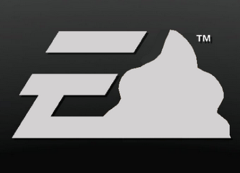EA Makes Case That It Shouldn’t Be Part Of Lawsuit Over NCAA Games
In spite of being previously instructed by the court to file no additional motions for dismissal, EA went ahead on Monday and filed a request to file a motion for dismissal, trying to convince the court that it should simply not be a defendant in the case, which also involves the Collegiate Licensing Company. The three defendants are accused of using players’ likenesses without their approval or compensation.
EA’s latest motion questions the “legal sufficiency” of the plaintiffs’ complaint. The video game giant claim the plaintiff “pleads no facts to support their theory that Electronic Arts Inc. participated in an antitrust conspiracy with the NCAA and Collegiate Licensing Company.”
“All it alleges is that EA agreed to follow the NCAA’s rules regarding using student-athletes’ names and likenesses,” continues EA’s argument. “That is not a viable antitrust claim. EA does not belong in this antitrust action that centers on the NCAA’s adoption and enforcement of its rules.
So, argues EA, it was merely following the rules, and “Under settled Ninth Circuit law, merely following the rules adopted and enforced by a business partner does not state an antitrust claim. Plaintiffs must allege that EA did something that goes ‘beyond the requirements of the NCAA rules and policies.’ They do not do so, except to re-state what they presented in their Reply in support of class certification that EA “lobbied” the NCAA to interpret those rules to permit the use of names and likenesses without compensation. This theory, however, claims nothing more than that EA made independent efforts to obtain as many rights and commercial benefits as it could within the confines of the NCAA’s requirements for its licensees. That allegation is insufficient as a matter of Ninth Circuit law to support a section 1 Sherman Act claim.”
So basically, EA is first saying that it just followed the rules set forth by NCAA policy. And so what if it egged on the NCAA to find loopholes and gray areas in those policies; that’s just good business. EA is essentially saying that if anyone did anything wrong, it wasn’t EA.
The motion to dismiss also makes the case that this lawsuit isn’t even an antitrust issue.
“The only conspiracy they allege is not an antitrust conspiracy at all,” reads the motion, “it is a conspiracy to use a publicity right without paying for it. That theory presents a royalties issue, not an antitrust issue… To prove an antitrust conspiracy, Plaintiffs must show that the alleged conspiracy was intended to produce, and did in fact produce,significant anticompetitive effects within a relevant market. The Third Amended Complaint fails to allege any anticompetitive effects in the alleged licensing market — the only proposed relevant market in which EA could possibly participate.”
Earlier this month, the divide between longtime partners EA and NCAA widened into a chasm as the NCAA announced it would not renew its existing licensing agreement with the video game publisher following the release of NCAA 14.
NCAA would have already been required to seek deals with other publishers, as a separate recent antitrust settlement against EA required that the two parties not enter into an exclusive agreement for five years after the end of its existing contract.
Almost immediately afterward, EA announced a partnership with the Collegiate Licensing Company that would keep EA’s steady stream of college football video games coming for the next several years.
EA asks for motion to dismiss NCAA antitrust lawsuit [Polygon]
Want more consumer news? Visit our parent organization, Consumer Reports, for the latest on scams, recalls, and other consumer issues.


